1. Life and the “Creative Mystery”
Lawrence believes that the chief thing modern science simply cannot explain is life itself. And he regards life as an irreducible, and ultimately inexplicable, primary. Further, he believes that there is no such thing as disembodied spirit, or immaterial existence. The only meaningful distinction is that between living and non-living matter.[1]
In addition, Lawrence believes that non-living matter is merely the dead remains of the living. (A position that will strike many as utterly bizarre.) Lawrence makes this claim many times, especially in Fantasia of the Unconscious, but also in his strange, Hermetic essay “The Two Principles.” He writes there, “Inanimate matter is released from the dead body of the world’s creatures. It is the static residue of the living conscious plasm, like feathers of birds.”[2] And: “death is not just shadow or mystery. It is the negative reality of life. It is what we call Matter and Force, among other things. . . . The cosmos is nothing but the aggregate of the dead bodies and dead energies of bygone individuals. The dead bodies decompose as we know into earth, air, and water, heat and radiant energy and free electricity and innumerable other scientific facts.”[3]
Obviously, if the non-living comes from the living and is its residue, then living things must have existed before there were any non-living things. But this seems to present a whole host of difficulties. Where did these living things reside, if not on the non-living rocks we call planets? If they were like the living things we know, then wouldn’t they have had to have breathed oxygen and consumed water? And oxygen and water can hardly be classed as “alive.” Lawrence finds a way around this problem, however, by postulating that in the beginning there were no living things; instead, life was “homogeneous,” and not divided into distinct creatures.
He puts this idea forward in his 1914 philosophical essay “A Study of Thomas Hardy”: “In the origin, life must have been uniform, a great unmoved, utterly homogeneous infinity, a great not-being, at once a positive and negative infinity: the whole universe, the whole infinity, one motionless homogeneity, a something, a nothing.”[4] (I will have reason to return to this quotation later for, as we shall shortly see, Lawrence qualifies this statement in an important way.)
Lawrence’s conception of an undifferentiated, homogeneous “life” is very close to Schopenhauer’s “will.” Recall that in The World as Will and Representation, Schopenhauer argues that the will is an impersonal, self-perpetuating force, and that it lies at the root of all that exists. Lawrence seems to have held some version of this theory for most of his life. In a letter from 1911 he writes: “There still remains a God, but not a personal God: a vast, shimmering impulse which waves onwards towards some end, I don’t know what—taking no regard for the little individual, but taking regard for humanity. When we die, like rain-drops falling back again into the sea, we fall back into the big, shimmering sea of unorganized life which we call God.”[5]
In Women in Love Birkin often expresses Schopenhauerian ideas: “Well, if mankind is destroyed, if our race is destroyed like Sodom, and there is this beautiful evening with the luminous land and trees, I am satisfied. That which informs it all is there, and can never be lost. After all, what is mankind but just one expression of the incomprehensible.”[6] And, later in the novel, Lawrence expresses Birkin’s thoughts after Gerald’s death:
If humanity ran into a cul-de-sac, and expended itself, the timeless creative mystery would bring forth some other being, finer, more wonderful, some new, more lovely race, to carry on the embodiment of creation. The game was never up. The mystery of creation was fathomless, infallible, inexhaustible, for ever. . . . The fountain-head was incorruptible and unsearchable. It had no limits. It could bring forth miracles, create utter new races and new species in its own hour, new forms of consciousness, new forms of body, new units of being. To be man was as nothing compared to the possibilities of the creative mystery.[7]
Lawrence also sometimes refers to “the pan mystery,” and at one point says “God is the flame-life in all the universe; multifarious, multifarious flames, all colours and beauties and pains and somberness. Whichever flame flames in your manhood, that is you, for the time being.”[8] Finally, in one of Lawrence’s last works of fiction, The Man Who Died, he writes,
And always the man who had died saw not the bird alone, but the short, sharp wave of life of which the bird was the crest. . . . And the man who had died watched the unsteady, rocking vibration of the bent bird, and it was not the bird he saw, but one wave-tip of life overlapping for a minute another, in the tide of the swaying ocean of life. And the destiny of life seemed more fierce and compulsive to him even than the destiny of death. The doom of death was a shadow compared to the raging destiny of life, the determined surge of life.[9]
Unlike Schopenhauer, Lawrence never settles on a single term for this “life force,” and so I have chosen to follow his language in Women In Love and to refer to it consistently here as the creative mystery. I take Lawrence’s discussion in “A Study of Thomas Hardy” of primordial life as a “great unmoved, utterly homogeneous infinity,” as yet another description of the creative mystery that lies at the root, and origin of all things.
It is easy to see that the creative mystery forms the basis for Lawrence’s ontology, his theory of Being.[10] If Lawrence merely followed Schopenhauer and identified the creative mystery with Being (as Schopenhauer himself never explicitly does), he would fall squarely within the tradition of what Heidegger calls “ontotheology.” Ontotheology is the error of identifying Being-as-such with the highest or most basic of all beings, or things that have being. The error is analogous to declaring that the characteristic of Tallness is just the same as a thing that happens to be tall (i.e., a thing that “has” tallness). To recognize what Heidegger calls the “ontological difference” is to recognize that Being is not simply another of the beings, no matter how special.
If the creative mystery is something that has Being, then it cannot be Being-as-such. Fortunately, however, Lawrence does not make this error. One of the few places where Lawrence explicitly refers to Being occurs in his essay “Reflections on the Death of a Porcupine”: “The clue to all existence is being. But you can’t have being without existence, any more than you can have the dandelion flower without the leaves and the long tap root.”[11] Essentially, for Lawrence Being is the emergence of individuals out of the creative mystery. The creative mystery itself is not Being, but what one might call the “ground of Being.”
This ontology comes very close to Heidegger’s understanding of the Pre-Socratic conception of Being as phusis. And surely this is no accident. Lawrence’s understanding of the creative mystery and what emerges from it was not formed solely through his encounter with Schopenhauer. His descriptions of it also reflect his encounter with pre-Socratic philosophy, which he also studied carefully. In particular, one can detect a strong hint of Anaximander’s “indefinite” (apeiron), out of which all things emerge and into which they return. I will return to Lawrence’s ontology later when I discuss his theory of the “Holy Ghost,” which “draws” individuals out of the creative mystery and into the flowering of Being. For now, however, we must continue to investigate Lawrence’s understanding of the creative mystery itself.
2. The Holy Ghost
Earlier I quoted Lawrence’s essay “A Study of Thomas Hardy” concerning the origin of life, when it was “uniform, a great unmoved, utterly homogeneous infinity.” However, he qualifies this statement in the next sentence: “And yet it can never have been utterly homogeneous: mathematically, yes; actually, no.”[12] Indeed, Lawrence makes it very clear elsewhere that he believes in the primacy of the individual.
In Fantasia of the Unconscious he writes, “Life is individual, always was individual and always will be. Life consists of living individuals, and always did so consist, in the beginning of everything.”[13] Later in the same text Lawrence remarks that living individuals are “the one, pure clue to our cosmos.” And then: “I only know there is but one origin, and that is the individual soul. The individual soul originated everything, and has itself no origin.”[14]Lawrence is here going a step further. Life is always individual life, but what accounts for individuality as such is “the soul,” or what he calls elsewhere the Holy Ghost. Lawrence has acquired these terms from his Christian upbringing, but he uses them in a highly unusual way, as we will see in the next section.
But here we must pause to raise a troubling, and obvious objection: doesn’t all of this completely contradict the idea Lawrence puts forward that in the beginning only life existed, but that it was an “utterly homogeneous infinity”? Yes and no. Lawrence frankly admits elsewhere that he does not believe there ever was a literal beginning to the universe. So what was the point, then, in telling us what happened “in the origin”? Is Lawrence simply spinning out myths? The answer is yes: Lawrence is consciously and deliberately expresses his ideas in mythic form.
When Lawrence speaks of a homogeneous life “in the origin” this is a mythic way of speaking of the creative mystery that is the source of all things. In a way, one can say that this is the “origin” of all things. However, the creative mystery has always existed in and through individuals. Because these individuals are all expressions of the creative mystery, they are all one; but the one creative mystery exists only within the many. As Lawrence says, “life” is homogeneous “mathematically,” but not “actually.”
Now, some might charge that the foregoing is merely a facile way of trying to resolve what is quite simply a glaring contradiction in Lawrence’s thought. But this is not the case. Lawrence makes it quite clear, in fact, that he means us to interpret him exactly as I have suggested. In his essay “The Two Principles” Lawrence writes: “When we postulate a beginning, we only do so to fix a starting point for our thought. There never was a beginning, and there never will be an end to the universe. The creative mystery, which is life itself, always was and always will be. It unfolds itself in pure living creatures.”[15]
For Lawrence, existence “begins” with an undifferentiated life force, which then progressively and infinitely individuates itself. Of course, we must remember that Lawrence does not believe in a literal beginning. When this is taken into account, his position comes extremely close to that of Schopenhauer: existence is, at root, an infinite will that never exists as such, purely by itself, but is continually “expressed” through individuals. Lawrence’s account of the course of creation then becomes, in effect, an alchemical ontology giving us the ultimate qualities and categories of being itself—the most fundamental of which are Fire and Water.
Lawrence develops his “creation myth” in Fantasia and in “The Two Principles.” It is complex and obscure, and best set aside for the moment. Instead, I will turn now to another issue, and an important one. We have seen that for Lawrence the purpose of existence itself is individuation: the coming-into-being of individuals of various forms, each unique and, to one degree or another, independent and self-sufficient. But how, in metaphysical terms, can we account of the arising of the individual? Lawrence answers this question with his idiosyncratic theory of the “Holy Ghost.”
Writing of the positive “sun-pole” and negative “moon-pole” in Fantasia, Lawrence states that “Existence is truly a matter of propagation between the two infinities. But it needs a third presence. . . . The hailstone needs a grain of dust for its core. So does the universe. Midway between the two cosmic infinities lies the third, which is more than infinite. This is the Holy Ghost Life, individual life.”[16] Lawrence also speaks of the ‘individual soul” as the “one clue to the universe.”[17] We shall see that the soul and the Holy Ghost are, in a way equivalent.
The Holy Ghost, Lawrence tells us, mediates between dualities. In the language of “The Two Principles” the Holy Ghost is that which “draws together” Fire and Water to produce a new individual. In his essay “The Crown,” Lawrence remarks that every new (living) individual is “a glimpse of the Holy Ghost.”[18] And in “Reflections on the Death of a Porcupine” he writes that “All existence is dual, and surging towards a consummation into being. In the seed of the dandelion, as it floats with its little umbrella of hairs, sits the Holy Ghost in tiny compass. The Holy Ghost is that which holds the light and the dark, the day and the night, the wet and the sunny, united in one little clue. There it sits, in the seed of the dandelion.”[19]
Lawrence’s concept of the Holy Ghost is not unlike Aristotelian entelecheia, or full or completed actuality. It is that for that for the sake of which each thing strives: its end, or, in Lawrence’s terms, its “fullness of being.” The entelecheia of a thing is just the fully-accomplished being or acting of the thing, yet it has the status of an ideality which is, in a sense, logically and ontologically prior to the existence of the thing. This comparison may seem a bit of stretch, so let us consider the following statements Lawrence makes in his essays. In “Reflections on the Death of a Porcupine” he writes,
Any creature that attains to its own fullness of being, its own living self, becomes unique, a nonpareil. It has its place in the fourth dimension, the heaven of existence, and there it is perfect, beyond comparison. . . . At the same time, every creature exists in time and space. And in time and space it exists relatively to all other existence, and can never be absolved. Its existence impinges on other existences, and is itself impinged upon. . . . The force which we call vitality, and which is the determining factor in the struggle for existence is, however, derived also from the fourth dimension. That is to say, the ultimate source of all vitality is in that other dimension, or region, where the dandelion blooms, and which men have called heaven, and which now they call the fourth dimension: which is only a way of saying that it is not to be reckoned in terms of space and time.[20]
 In “Him with His Tail in His Mouth” (1925), Lawrence writes “Creation is a fourth dimension, and in it there are all sorts of things, gods and what-not. That brown hen, scratching with her hind leg in such common fashion, is a sort of goddess in the creative dimension.”[21] And in “Morality and the Novel” (1925), Lawrence tells us “By life, we mean something that gleams, that has the fourth-dimensional quality.”[22] Nothing in Lawrence is ever completely clear, but it seems clear enough in these passages that he thinks that living things exist in two ways. In space and time they exist alongside other creatures, and in large measure are what they are in contrast or opposition to those other creatures. In truth, however, their being is located in a realm beyond space and time.
In “Him with His Tail in His Mouth” (1925), Lawrence writes “Creation is a fourth dimension, and in it there are all sorts of things, gods and what-not. That brown hen, scratching with her hind leg in such common fashion, is a sort of goddess in the creative dimension.”[21] And in “Morality and the Novel” (1925), Lawrence tells us “By life, we mean something that gleams, that has the fourth-dimensional quality.”[22] Nothing in Lawrence is ever completely clear, but it seems clear enough in these passages that he thinks that living things exist in two ways. In space and time they exist alongside other creatures, and in large measure are what they are in contrast or opposition to those other creatures. In truth, however, their being is located in a realm beyond space and time.
So far, this seems Platonic. However, Lawrence tells us that any creature that attains its own “fullness of being” becomes unique, and “has its place in the fourth dimension.” In other words, being, for Lawrence, is an achievement. When creatures actualize themselves through becoming what they are, this actuality (what Lawrence calls “vitality”), achieved in space-time, partakes of the eternal.[23] Employing Aristotelian terminology to explain these ideas is almost irresistible—but I hope at this point that the reader sees that my use of this terminology is not misuse.
The Holy Ghost is the actuality of each individual living thing, existing “prior” to it, drawing it on to its achieved fullness of being. Lawrence’s statement that in the fourth dimension “there are all sorts of things, gods and what-not” is tantalizing. I take it to support my claims about the Holy Ghost (i.e., that it is a non-spatio-temporal ideality). But Lawrence’s remark about the hen shows very clearly that, as I shall argue more fully later on, each individual thing is itself God or a god insofar as it follows its Holy Ghost and achieves its fullness of being.
As we have seen, the universe for Lawrence tends toward individuation—or, to put it another way, the creative mystery realizes itself through the perpetual blossoming of myriad individuals. “While we live, we are balanced between the flux of life and the flux of death. But the real clue is the Holy Ghost, that moves us into the state of blossoming. And each year the blossoming is different: from the delicate blue speedwells of childhood to the equally delicate, frail farewell flowers of old age: through all the poppies and sunflowers: year after year of difference.”[24] The blossom is the “completed” individual, which is a wholly unique creation; an unrepeatable expression of the creative mystery.
Lawrence tells us that “Blossoming means the establishing of a pure, new relationship with all the cosmos.”[25] According to Lawrence’s fanciful cosmogony, “first” the creative mystery abides as the one existing individual. Yet, in this form, it is simply undifferentiated “life plasm”—and, in truth, it is no individual at all, for it has no other against which it marks itself off as a specific something. The creative mystery then comes to actualization as an individual, not through the introduction of a foreign other, but through “othering itself”: through expressing itself as an infinite plurality of individuals, whose identities mutually determine each other – who are drawn forth from the mystery in blossoming, abide for a while, then die. The residue they leave forms the material out of which other living things are grown, and on which they depend for shelter and sustenance.
That Lawrence is aware that he is formulating an ontology is clear from the language he uses. For example, to repeat a quotation from “Reflections on the Death of a Porcupine,” he states that “The clue to all existence is being. But you can’t have being without existence, any more than you can have the dandelion flower without the leaves and the long tap root.”[26] By “being” Lawrence means “blossoming,” which not only bears a strong similarity to the Aristotelian entelecheia, but also, more generally, to the Greek phusis, mentioned earlier. Existence, on the other hand, refers to the concrete forms through which blossoming takes place: individual flowers, animals, human beings, etc.
Lawrence is telling us that the clue to understanding beings is Being, but that there is no Being without beings. So long as one understands the specific sense Lawrence gives to Being—“blossoming”—these are not vacuous statements. Things exist only insofar as they are, in essential terms, the blossoming forth of an underlying, primal reality—and this underlying, primal reality only exists through the concrete forms of blossoming in terms of which it “specifies” itself.
Unsurprisingly, Lawrence goes on to identify his Holy Ghost with God. To Heideggereans, of course, this means that Lawrence’s ontology slides over into the fallacy of ontotheology, discussed earlier. Lawrence remarks that “The flower is the burning of God in the bush: the flame of the Holy Ghost: the actual Presence of accomplished oneness, accomplished out of twoness. The true God is created every time a pure relationship, or a consummation out of twoness into oneness takes place. So that the poppy flower is God come red out of the poppy-plant.”[27]
In truth, however, this is not ontotheology. Lawrence is in actual fact telling us that there is no separate being called God. If however, what we mean by “God” is simply the most fundamental fact or, we might say, the most fundamental act in the universe, then we may identify God with Being or blossoming as such. Lawrence’s imagery in the above quotation is a particularly brilliant example of both his skills as a writer, and as an interpreter of myth. God is the burning bush—but in truth every bush, every flower, every living thing is the fire of God: the fire of “accomplished oneness.” God, for Lawrence, just is individuation, and God comes into being, in the world, each time a new living individual blossoms forth.
So far I have spoken in general terms of the Holy Ghost as, in effect, an ideality all living things are striving, in Aristotelian fashion, to “realize.” But nothing has been said specifically about the Holy Ghost in us, and our experience of it. In his 1924 essay “On Being Religious,” Lawrence tells us that “Only the Holy Ghost within you can scent the new tracks of the Great God across the Cosmos of Creation. The Holy Ghost is the dark hound of heaven whose baying we ought to listen to, as he runs ahead into the unknown, tracking the mysterious everlasting departing of the Lord God, who is for ever departing from us.”[28]
The Holy Ghost is an “ideality,” in the sense that it is something being striven for, but in the human being it is not the intellect or a part of the intellect. In so far as Aristotle seems to identify the actualization of the human animal with the actualization of its intellect, this is definitely a point on which Lawrence parts company with Aristotle. As I have argued in other essays, for Lawrence the “true self” is not to be identified with the conscious, socially-constructed ego, nor is it to be identified with intellect. In fact, for Lawrence, the Holy Ghost in human beings is more or less the same thing that he calls the true unconscious (see my essay “D. H. Lawrence on the Unconscious [2]”). It is the primal self that knows without abstract concepts, and guides without words and rules. It is this primal self that draws us on to the realization of our “fullness of being.”
Our Holy Ghost is our being—and it is an expression of the ultimate being, the creative mystery. Thus, when Lawrence tells us that “Only the Holy Ghost within you can scent the new tracks of the Great God across the Cosmos of Creation” he means that if we are to identify ourselves with our primal self—if we are able to become, in a sense, just that—then through it we know all of life, all of the universe. Lawrence’s position is, again, structurally similar to that of Schopenhauer. In Schopenhauer’s philosophy, we come to know the will in nature through the will that manifests itself in our deepest self. Indeed, that is the only way in which we may become aware directly of the will as the source of all that is.
“We go in search of God,” Lawrence writes, “following the Holy Ghost, and depending on the Holy Ghost. There is no Way. There is no Word. There is no Light.”[29] Lawrence means that there is no way to God, to awareness of ultimate reality and ultimate goodness, except through following our own Holy Ghost and letting it draw us into blossoming, into fullness of being. In other words, because God just is Being or blossoming, there is no way to God except through each of us becoming what we are.
Words cannot get us there, nor can following a path marked out by others, or a light kindled by others. Each of us is alone before God, and each way to God is individual because God is individuation. Recall the passage quoted earlier: “Creation is a fourth dimension, and in it there are all sorts of things, gods and what-not. That brown hen, scratching with her hind leg in such common fashion, is a sort of goddess in the creative dimension.”[30] In a sense, each living thing is God insofar as it achieves its fullness of being.
Notes
[1] “There is no utterly immaterial existence, no spirit. The distinction is between living plasm and inanimate matter.” Phoenix II, 230 (“The Two Principles”).
[2] Phoenix II, 230 (“The Two Principles”).
[4] Phoenix, 432 (“A Study of Thomas Hardy”).
[5] Selected Letters of D. H. Lawrence, ed. Diana Trilling (New York: Farrar, Straus, and Cudahy, 1958), 10. Note that Schopenhauer does not identity will with God. His is an atheistic philosophy. But Lawrence has already gone beyond Schopenhauer and given a religious dimension to the will doctrine. Also, there is no direct evidence that Lawrence read The World as Will and Representation. However, we do know that he read Schopenhauer’s essays, and that they made a major impact on him.
[6] D. H. Lawrence, Women in Love (New York: Viking Press, 1969), 52.
[8] Phoenix II, 426 (“The Novel”).
[9] D. H. Lawrence, The Man Who Died (New York: Ecco Press, 1994), 17-18.
[10] I capitalize the B in Being to distinguish it from a being, or thing which has Being. In other words, beings (things which are) have Being.
[11] Phoenix II, 470 (“Reflections on the Death of a Porcupine”).
[12] Phoenix, 432 (“A Study of Thomas Hardy”).
[15] Phoenix II, 227 (“The Two Principles”).
[18] Phoenix II, 396 (“The Crown”).
[19] Phoenix II, 470 (“Reflections on the Death of a Porcupine”).
[20] Phoenix II, 469 (“Reflections on the Death of a Porcupine”).
[21] Phoenix II, 431 (“Him With His Tail in His Mouth”).
[22] Phoenix I, 529 (“Morality and the Novel”).
[23] In “Reflections on the Death of a Porcupine,” Lawrence writes “Being is not ideal, as Plato would have it: nor spiritual. It is a transcendent form of existence, as much material as existence is. Only the matter suddenly enters the fourth dimension” (Phoenix II, 470). I take Lawrence to be expressing here (without realizing it) essentially the Aristotelian alternative to Platonism: the being of the thing is not another “thing” existing in another reality. Instead, in some sense a living thing becomes eternal—becomes fourth-dimensional—in its actualization. At the same time, we may speak of this “actualization” as something transcendent precisely because it is not a spatio-temporal “thing” at all, but something ontologically “prior” to things. Insofar as it is the actualization of some spatio-temporal living thing, however, in another way it is immanent.
[24] Phoenix II, 396 (“The Crown”).
[25] Phoenix II, 471 (“Reflections on the Death of a Porcupine”).
[27] Phoenix II, 412 (“The Crown”).
[28] Phoenix I, 728 (“On Being Religious”).
[30] Phoenix II, 431 (“Him With His Tail in His Mouth”).



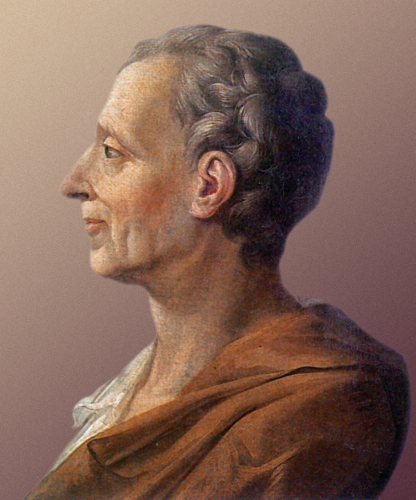

 del.icio.us
del.icio.us
 Digg
Digg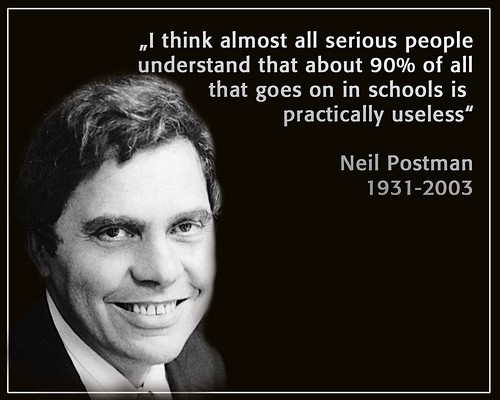
 Diese Vorstellung ist um so gefährlicher, als sie niemand mit vernünftigen Gründen gegen den rationalen Einsatz von Verfahren und Techniken stellen kann, mit denen sich bestimmte Vorhaben verwirklichen lassen. (...) Die Kontroverse betrifft den Triumph des Verfahrens, seine Erhöhung zu etwas Heiligem, wodurch verhindert wird, daß auch andere Verfahrensweisen eine Chance bekommen» (S. 153-154). Weiter warnt uns Postman von einer unheimlichen Gefahr, d. h. die Gefahr der Entleerung der Symbole. Wenn traditionnelle oder religiöse Symbole beliebig manipuliert oder verhöhnt werden, als ob sie mechanische Teilchen wären, entleeren sie sich. Hauptschuldige daran ist die Werbung, die einen ständig größeren Einfluß über unseres tägliche Denken ausübt und die die Jugend schlimm verblödet, so daß sie alles im Schnelltempo eines Werbungsspot verstehen will. Um Waren zu verkaufen, manipulieren die Werbeleute gut bekannte politische, staatliche oder religiöse Symbole. Diese werden dann gefährlich banalisiert oder lächerlich gemacht, dienen nur noch das interressierte Verkaufen, verlieren jedes Mysterium, werden nicht mehr mit Andacht respektiert. So verlieren ein Volk oder eine Kultur ihren Rückengrat, erleben einen problematischen Sinnverlust, der die ganze Gemeinschaft im verheerenden Untergang stoßen. Postmans Bücher sind wichtig, weil sie uns ganz sachlich auf zeitgenößischen Problemen aufmerksam machen, ohne eine peinlich apokalyptische Sprache zu verwenden. Zum Beispiel ist Postman klar bewußt, daß die Technik lebenswichtig für den Menschen ist, denunziert aber ohne unnötige Pathos die gefährliche Autonomisierung von technischen Verfahren. Postman plädiert nicht für eine irrationale Technophobie. Schmittianer werden in seiner Analyse der unsichtbaren Technologien, wie das Management, eine tagtägliche Quelle der Delegitimierung und Legalisierung der politischen Gemeinschaften.
Diese Vorstellung ist um so gefährlicher, als sie niemand mit vernünftigen Gründen gegen den rationalen Einsatz von Verfahren und Techniken stellen kann, mit denen sich bestimmte Vorhaben verwirklichen lassen. (...) Die Kontroverse betrifft den Triumph des Verfahrens, seine Erhöhung zu etwas Heiligem, wodurch verhindert wird, daß auch andere Verfahrensweisen eine Chance bekommen» (S. 153-154). Weiter warnt uns Postman von einer unheimlichen Gefahr, d. h. die Gefahr der Entleerung der Symbole. Wenn traditionnelle oder religiöse Symbole beliebig manipuliert oder verhöhnt werden, als ob sie mechanische Teilchen wären, entleeren sie sich. Hauptschuldige daran ist die Werbung, die einen ständig größeren Einfluß über unseres tägliche Denken ausübt und die die Jugend schlimm verblödet, so daß sie alles im Schnelltempo eines Werbungsspot verstehen will. Um Waren zu verkaufen, manipulieren die Werbeleute gut bekannte politische, staatliche oder religiöse Symbole. Diese werden dann gefährlich banalisiert oder lächerlich gemacht, dienen nur noch das interressierte Verkaufen, verlieren jedes Mysterium, werden nicht mehr mit Andacht respektiert. So verlieren ein Volk oder eine Kultur ihren Rückengrat, erleben einen problematischen Sinnverlust, der die ganze Gemeinschaft im verheerenden Untergang stoßen. Postmans Bücher sind wichtig, weil sie uns ganz sachlich auf zeitgenößischen Problemen aufmerksam machen, ohne eine peinlich apokalyptische Sprache zu verwenden. Zum Beispiel ist Postman klar bewußt, daß die Technik lebenswichtig für den Menschen ist, denunziert aber ohne unnötige Pathos die gefährliche Autonomisierung von technischen Verfahren. Postman plädiert nicht für eine irrationale Technophobie. Schmittianer werden in seiner Analyse der unsichtbaren Technologien, wie das Management, eine tagtägliche Quelle der Delegitimierung und Legalisierung der politischen Gemeinschaften. 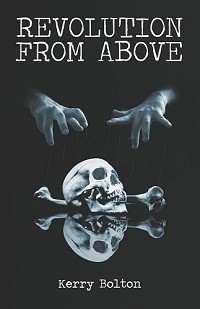 Jeder, der einmal versucht oder auch nur theoretisch erwogen hat, einen größeren geistig-politischen Umschwung herbeizuführen – von einer Revolution ganz zu schweigen –, weiß, daß dazu vor allem eines erforderlich ist: Geld.
Jeder, der einmal versucht oder auch nur theoretisch erwogen hat, einen größeren geistig-politischen Umschwung herbeizuführen – von einer Revolution ganz zu schweigen –, weiß, daß dazu vor allem eines erforderlich ist: Geld.


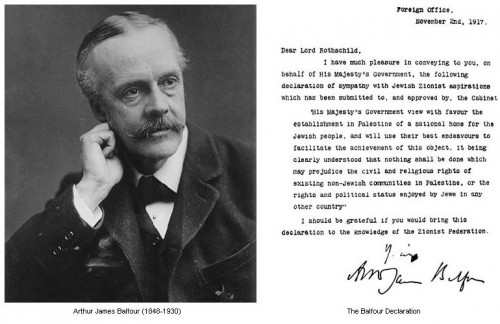










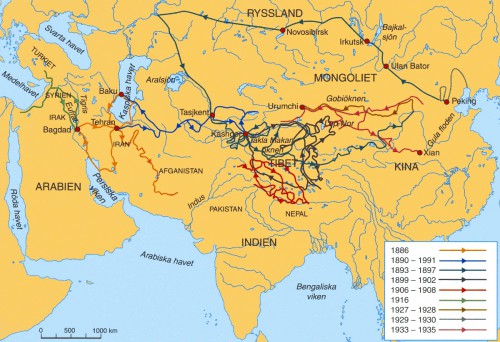
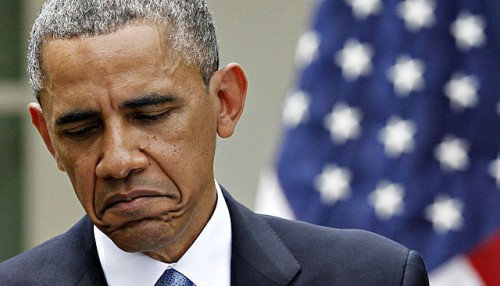


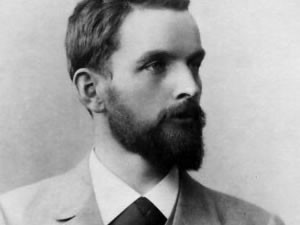 Silvio Gesell war ein nonkonformistischer Ökonom. Er nahm zusammen mit Figuren sowie Niekisch, Mühsam und Landauer an der Räteregierung Bayerns teil. Der gebürtige Sankt-Vikter entwickelte in seinem wichtigsten Buch “Die natürliche Ordnung” ein Projekt der Umverteilung des Bodens, damit ein Jeder selbständig-autonom in totaler Unabhängigkeit von abstrakten Strukturen leben konnte. Günter Bartsch nennt ihn ein “Akrat”, d.h. ein Mensch, der frei von jeder Bevormündung ist, sei diese politischer, religiöser oder verwaltungsartiger Natur. Für Klaus Schmitt, der Gesell für die deutsche nonkonforme Linke wiederentdeckt (aber nicht kritiklos), ist der räterepublikanische Akrat ein der schärfsten Kritiker der “Macht Mammons”. Diese Allmacht wollte Gesell mit der Einführung eines “Schwundgeldes” bzw. einer “Freigeld-Lehre” zerschmettern. Unter “Schwundgeld” verstand er ein Geld, das man nicht thesaurisieren konnte und für das keine Zinsen gezahlt wurden. Im Gegenteil war für Gesell die Hortung von Geldwerten die Hauptsünde. Geld, das nicht in Sachen (Maschinen, Geräte, Technik, Erziehung, Boden, Vieh, usw.) investiert wird, mußte durch moralischen und ökonomischen Zwang an Wert verlieren. Solche Ideen entwickelten auch der Vater des kanadischen und angelsächsichen Distributismus, C. H. Douglas, und der Dichter Ezra Pound, der in den amerikanischen Regierung ein Instrument des Teufels Mammon sah. Douglas entwickelte distributistische Bauern-Projekte in Kanada, die teilweise noch heute existieren. Pound drückte seinen Dichterhaß gegen Geld- und Bankwesen, indem er die italienischen “Saló-Republik” am Ende des Krieges unterstütze. Pound versuchte, seine amerikanische Landgenossen zu überzeugen, keinen Krieg gegen Mussolini und das spätfaschistischen Italien zu führen. Nach 1945, wurde er in den VSA zwölf Jahre lang in einer Irrenanstalt eingesperrt. Er kam trotzdem aus dieser Hölle ungebrochen zurück und ging bei seiner Dochter Mary de Rachewiltz in Südtirol wohnen, wo er 1972 starb.
Silvio Gesell war ein nonkonformistischer Ökonom. Er nahm zusammen mit Figuren sowie Niekisch, Mühsam und Landauer an der Räteregierung Bayerns teil. Der gebürtige Sankt-Vikter entwickelte in seinem wichtigsten Buch “Die natürliche Ordnung” ein Projekt der Umverteilung des Bodens, damit ein Jeder selbständig-autonom in totaler Unabhängigkeit von abstrakten Strukturen leben konnte. Günter Bartsch nennt ihn ein “Akrat”, d.h. ein Mensch, der frei von jeder Bevormündung ist, sei diese politischer, religiöser oder verwaltungsartiger Natur. Für Klaus Schmitt, der Gesell für die deutsche nonkonforme Linke wiederentdeckt (aber nicht kritiklos), ist der räterepublikanische Akrat ein der schärfsten Kritiker der “Macht Mammons”. Diese Allmacht wollte Gesell mit der Einführung eines “Schwundgeldes” bzw. einer “Freigeld-Lehre” zerschmettern. Unter “Schwundgeld” verstand er ein Geld, das man nicht thesaurisieren konnte und für das keine Zinsen gezahlt wurden. Im Gegenteil war für Gesell die Hortung von Geldwerten die Hauptsünde. Geld, das nicht in Sachen (Maschinen, Geräte, Technik, Erziehung, Boden, Vieh, usw.) investiert wird, mußte durch moralischen und ökonomischen Zwang an Wert verlieren. Solche Ideen entwickelten auch der Vater des kanadischen und angelsächsichen Distributismus, C. H. Douglas, und der Dichter Ezra Pound, der in den amerikanischen Regierung ein Instrument des Teufels Mammon sah. Douglas entwickelte distributistische Bauern-Projekte in Kanada, die teilweise noch heute existieren. Pound drückte seinen Dichterhaß gegen Geld- und Bankwesen, indem er die italienischen “Saló-Republik” am Ende des Krieges unterstütze. Pound versuchte, seine amerikanische Landgenossen zu überzeugen, keinen Krieg gegen Mussolini und das spätfaschistischen Italien zu führen. Nach 1945, wurde er in den VSA zwölf Jahre lang in einer Irrenanstalt eingesperrt. Er kam trotzdem aus dieser Hölle ungebrochen zurück und ging bei seiner Dochter Mary de Rachewiltz in Südtirol wohnen, wo er 1972 starb.  Neben seiner ökonomischen Lehren über das Schwund- und Freigeld, theorisierte Gesell einen Anarchofeminismus, wobei er besonders die Kinder und die Frauen gegen männliche Ausbeutung schützen wollte. Diese Interpretation des matriarchalischen Archetyp implizierte eine ziemlich scharfe Kritik des Vaterrechts, der in seinen Augen die Position der Kinder in der Gesellschaft besonders labil machte. Insofern war Gesell ein Vorfechter der Kinderrechte. Praktish bedeutete dieser Anarchofeminismus die Einführung einer “Mutterrente”. «Gesell und sein Anhänger wollten den gesamten Boden den Müttern zueignen und ihnen bzw. ihren Kinder die Bodenrente bis zum 18. Lebensjahr der Kinder als “Mutter-” bzw. “Kinderrente” zukommen lassen. Ein “Bund der Mütter” soll den gesamten nationalen und in ferner Zukunft den gesamten Boden unseres Planeten verwalten und (...) an den oder die Meistbietenden verpachten. Nach diesem Verfahren hätte jeder einzelne Mensch und jede einzelne Gruppe (z. B. eine Genossenschaft) die gleichen Chancen wie alle anderen, Boden nutzen zu können, ohne von privaten oder staatlichen Parasiten ausgebeutet zu werden» (S. 124). Wissenschaftliche Benennung dieses Systems nach Gesell hieß “physiokratische Mutterschaft”.
Neben seiner ökonomischen Lehren über das Schwund- und Freigeld, theorisierte Gesell einen Anarchofeminismus, wobei er besonders die Kinder und die Frauen gegen männliche Ausbeutung schützen wollte. Diese Interpretation des matriarchalischen Archetyp implizierte eine ziemlich scharfe Kritik des Vaterrechts, der in seinen Augen die Position der Kinder in der Gesellschaft besonders labil machte. Insofern war Gesell ein Vorfechter der Kinderrechte. Praktish bedeutete dieser Anarchofeminismus die Einführung einer “Mutterrente”. «Gesell und sein Anhänger wollten den gesamten Boden den Müttern zueignen und ihnen bzw. ihren Kinder die Bodenrente bis zum 18. Lebensjahr der Kinder als “Mutter-” bzw. “Kinderrente” zukommen lassen. Ein “Bund der Mütter” soll den gesamten nationalen und in ferner Zukunft den gesamten Boden unseres Planeten verwalten und (...) an den oder die Meistbietenden verpachten. Nach diesem Verfahren hätte jeder einzelne Mensch und jede einzelne Gruppe (z. B. eine Genossenschaft) die gleichen Chancen wie alle anderen, Boden nutzen zu können, ohne von privaten oder staatlichen Parasiten ausgebeutet zu werden» (S. 124). Wissenschaftliche Benennung dieses Systems nach Gesell hieß “physiokratische Mutterschaft”.

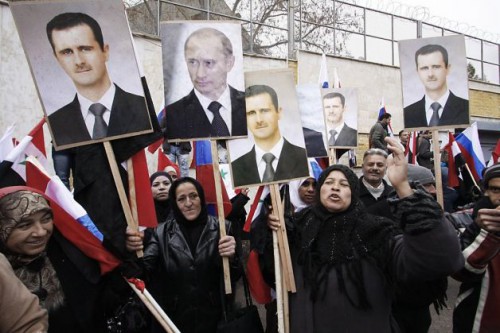


 In “Him with His Tail in His Mouth” (1925), Lawrence writes “Creation is a fourth dimension, and in it there are all sorts of things, gods and what-not. That brown hen, scratching with her hind leg in such common fashion, is a sort of goddess in the creative dimension.”[21] And in “Morality and the Novel” (1925), Lawrence tells us “By life, we mean something that gleams, that has the fourth-dimensional quality.”[22] Nothing in Lawrence is ever completely clear, but it seems clear enough in these passages that he thinks that living things exist in two ways. In space and time they exist alongside other creatures, and in large measure are what they are in contrast or opposition to those other creatures. In truth, however, their being is located in a realm beyond space and time.
In “Him with His Tail in His Mouth” (1925), Lawrence writes “Creation is a fourth dimension, and in it there are all sorts of things, gods and what-not. That brown hen, scratching with her hind leg in such common fashion, is a sort of goddess in the creative dimension.”[21] And in “Morality and the Novel” (1925), Lawrence tells us “By life, we mean something that gleams, that has the fourth-dimensional quality.”[22] Nothing in Lawrence is ever completely clear, but it seems clear enough in these passages that he thinks that living things exist in two ways. In space and time they exist alongside other creatures, and in large measure are what they are in contrast or opposition to those other creatures. In truth, however, their being is located in a realm beyond space and time.